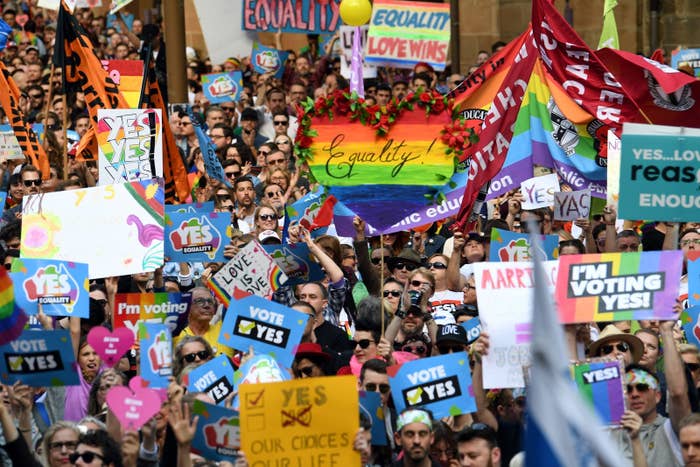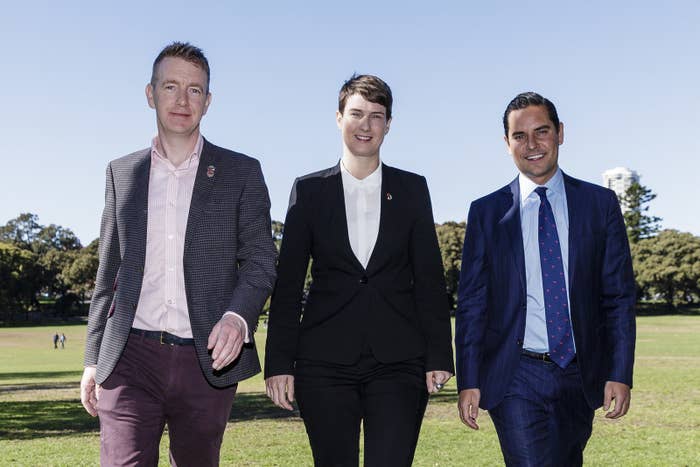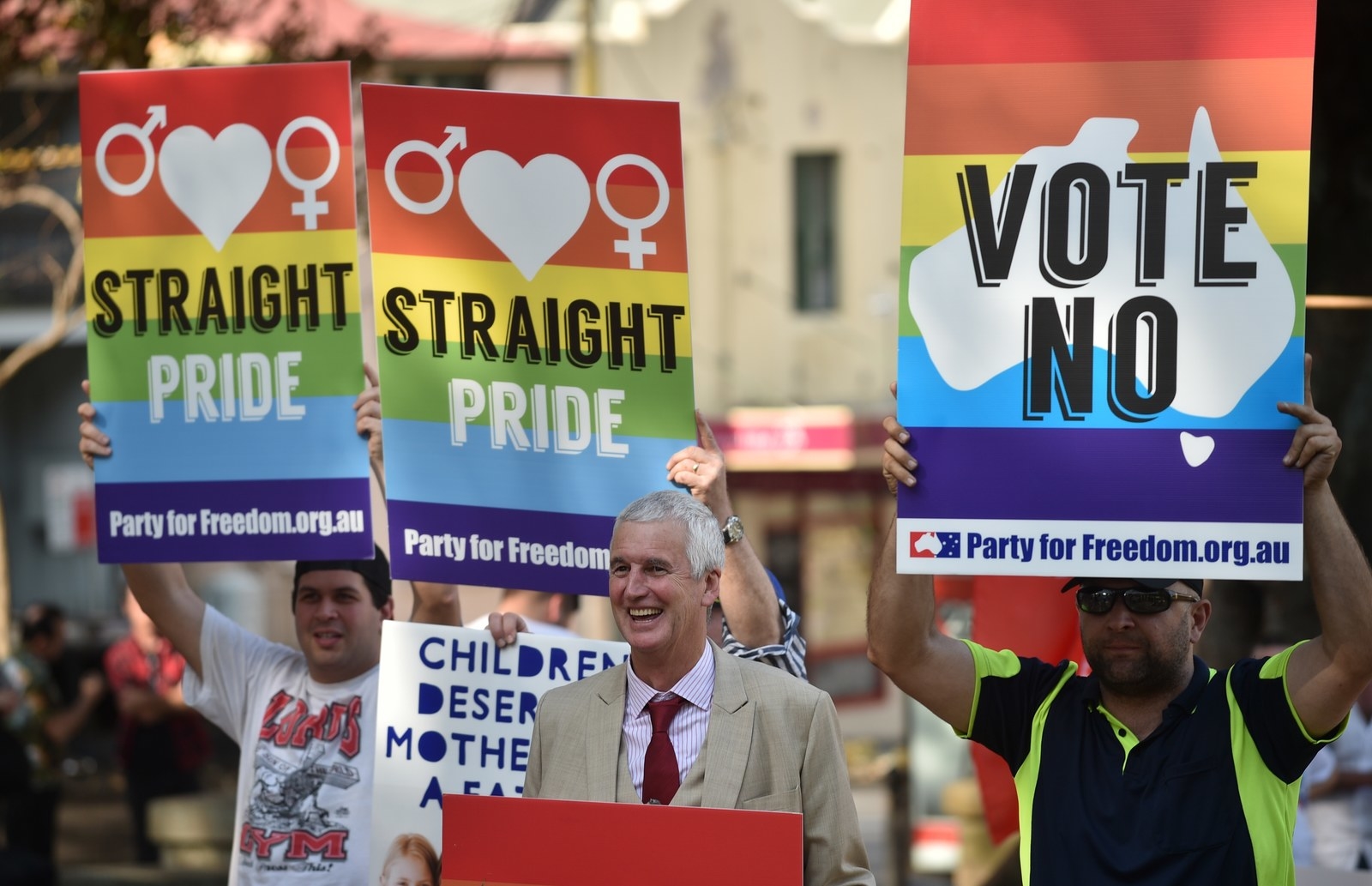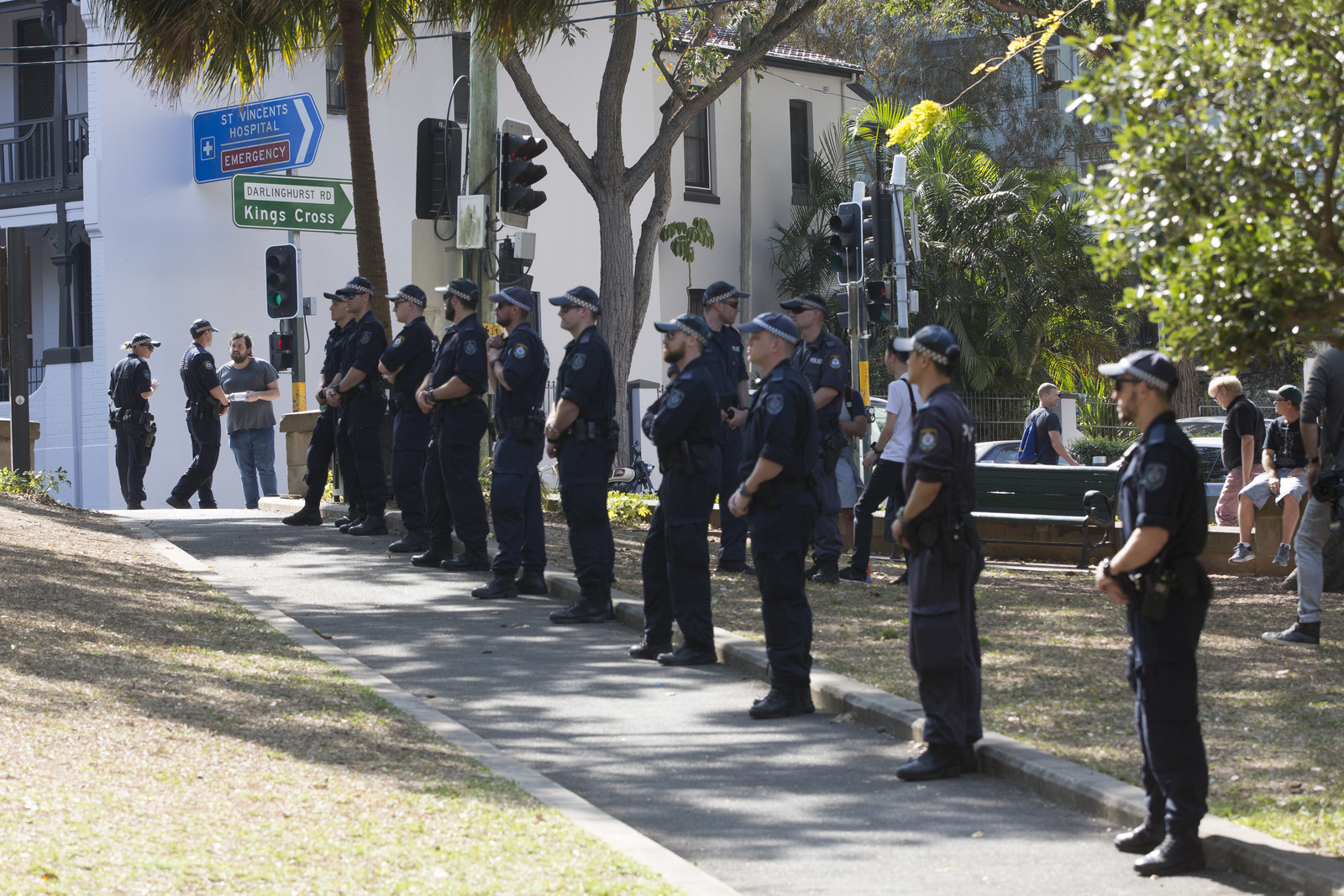
Recent polls indicating a drop in support for marriage equality have some advocates insisting that the "yes" campaign should start attacking the "no" side's arguments and pivot to a negative campaign strategy.
As of this week, the Australian Bureau of Statistics has mailed out all survey forms for the marriage equality postal survey, and has opened online forms for overseas voters, but it is still six weeks until the survey period is closed, and seven weeks until the result is announced.
Recent polling from Newspoll and Essential has suggested a slight fall in support for marriage equality, down a few percentage points, but still well over 50%, and way ahead of those opposed to marriage equality, at just over 30%.
The Essential poll rebounded on Tuesday, with support for marriage equality up from 55% to 58%. Of the 36% of respondents who said they had returned their survey form, 72% of those said they voted "yes".
Despite still being way out in front, the drop in the polls has some on the "yes" side very nervous. The long lead time means some who support marriage equality are afraid that the "no" campaign message is getting through to what they call "soft yes" voters who are open to changing their mind on the issue.
Tasmanian marriage equality campaigners Robin Banks and Rodney Croome wrote in a post for Junkee this week that the pro-marriage equality campaign should pivot from a positive message and go negative in order to respond to attempts to conflate marriage equality with religious freedom, freedom of speech and the anti-bullying Safe Schools program.
"The arguments are out there and we need to address them or risk looking like we are trying to hide something," they wrote.

But executive director of The Equality Campaign, Tiernan Brady, said there would always be people trying to tell campaigners what to do, but that the campaign would not be going negative.
"We have a strategy that has worked for years in Australia of winning people over," he told BuzzFeed News.
Part of the reason why Brady believes it would be a mistake for the "yes" side to go negative is that even if it resulted in a victory, it would ultimately hurt the country and LGBTI people in Australia.
"We have always said we have to wake up in the same country and share the same space the next day, and a campaign that aims to divide society ... and wants to go negative against the people whose minds we want to change brings us no victory," he said. "We will be staying 100% positive and nothing will blow us off track."
The "no" campaign and its supporters in the media have been campaigning on the idea that supporters of marriage equality are "bullies", attempting to silence and shut down debate. Brady indicated that going negative would be what the "no" campaign wanted.
"We know part of the job of the 'no' campaign is to provoke us. It's to make us angry. It's to make change look scary.
"What I have found utterly remarkable and amazing over the last four weeks is the incredible dignity and determination and discipline that the LGBTI community have shown by refusing to go negative, refusing to be provoked and by refusing to be provoked, they are winning hearts and minds everywhere."
LGBTI groups had feared that a "straight lives matter" rally held over the weekend in Green Park, Darlinghurst — which houses a memorial to gay and lesbian Holocaust victims — would turn violent and hurt the "yes" campaign.

The LGBTI community didn't take the bait, however. Although the counter-protesters reportedly outnumbered the 15 people there to support the "straight lives matter" protest, NSW Police told news.com.au there were "no issues at all" with clashes between the two groups, with 60 officers present at the event.

Part of the concern from marriage equality supporters over how the campaign is being run is that the "no" side is getting much more play in media than the "yes" side.
Data provided to BuzzFeed News last week showed that in the media, the "no" campaign's messaging was getting four times as much coverage as messages from the "yes" side. This has been backed up by data also provided to Guardian Australia. Brady says, however, that the campaign isn't about the spokespeople in the media.
"We are not the story. LGBTI people are the story, and their parents and their brothers and sisters and supporters in general — like Frances Abbott today," he said.
When rocks were thrown through windows of a rainbow "vote yes" house in Brisbane earlier this week, the Coalition For Marriage (the driving force behind the "no" vote) refused to directly condemn the incident, as the "yes" campaign has been called upon to do, and has done, over the course of the past few weeks.
"I'll leave it to our opponents what actions they want to be associated with, or not associated with," Brady said. "We have always very clearly and quickly as a campaign condemned any negative disrespectful moments because this is a campaign about respect. We've got to look like the respect we are seeking."

